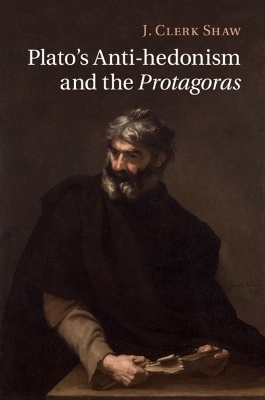
Plato's Anti-hedonism and the Protagoras
Seiten
2015
Cambridge University Press (Verlag)
978-1-107-04665-8 (ISBN)
Cambridge University Press (Verlag)
978-1-107-04665-8 (ISBN)
Anti-hedonism is the core of Plato's critical project in ethics and politics, including in his seemingly hedonist work, the Protagoras. In this book, J. Clerk Shaw reconciles the Protagoras with Plato's other dialogues, arguing that the Protagoras as a whole actually reflects Plato's anti-hedonism.
Plato often rejects hedonism, but in the Protagoras, Plato's Socrates seems to endorse hedonism. In this book, J. Clerk Shaw removes this apparent tension by arguing that the Protagoras as a whole actually reflects Plato's anti-hedonism. He shows that Plato places hedonism at the core of a complex of popular mistakes about value and especially about virtue: that injustice can be prudent, that wisdom is weak, that courage is the capacity to persevere through fear, and that virtue cannot be taught. The masses reproduce this system of values through shame and fear of punishment. The Protagoras and other dialogues depict sophists and orators who have internalized popular morality through shame, but who are also ashamed to state their views openly. Shaw's reading not only reconciles the Protagoras with Plato's other dialogues, but harmonizes it with them and even illuminates Plato's wider anti-hedonism.
Plato often rejects hedonism, but in the Protagoras, Plato's Socrates seems to endorse hedonism. In this book, J. Clerk Shaw removes this apparent tension by arguing that the Protagoras as a whole actually reflects Plato's anti-hedonism. He shows that Plato places hedonism at the core of a complex of popular mistakes about value and especially about virtue: that injustice can be prudent, that wisdom is weak, that courage is the capacity to persevere through fear, and that virtue cannot be taught. The masses reproduce this system of values through shame and fear of punishment. The Protagoras and other dialogues depict sophists and orators who have internalized popular morality through shame, but who are also ashamed to state their views openly. Shaw's reading not only reconciles the Protagoras with Plato's other dialogues, but harmonizes it with them and even illuminates Plato's wider anti-hedonism.
J. Clerk Shaw is Associate Professor of Philosophy at the University of Tennessee, Knoxville. His articles have appeared in journals including Classical Philology.
Introduction; 1. Against hedonist interpretations of the Protagoras; 2. Courage, madness, and spirit at 349d-51b; 3. Drama and dialectic in Plato's Protagoras; 4. Drama and dialectic in Plato's Gorgias, revisited; 5. Shame, internalization, and the many; 6. Hedonism, hedonic error, and ethical error; 7. Hedonist misconceptions of virtue; 8. Popular hostility to Sophists and philosophers.
| Erscheint lt. Verlag | 2.4.2015 |
|---|---|
| Verlagsort | Cambridge |
| Sprache | englisch |
| Maße | 160 x 237 mm |
| Gewicht | 380 g |
| Themenwelt | Geschichte ► Allgemeine Geschichte ► Vor- und Frühgeschichte |
| Geschichte ► Allgemeine Geschichte ► Altertum / Antike | |
| Geisteswissenschaften ► Philosophie ► Ethik | |
| Geisteswissenschaften ► Philosophie ► Philosophie Altertum / Antike | |
| Geisteswissenschaften ► Psychologie | |
| Sozialwissenschaften ► Politik / Verwaltung ► Politische Theorie | |
| ISBN-10 | 1-107-04665-3 / 1107046653 |
| ISBN-13 | 978-1-107-04665-8 / 9781107046658 |
| Zustand | Neuware |
| Informationen gemäß Produktsicherheitsverordnung (GPSR) | |
| Haben Sie eine Frage zum Produkt? |
Mehr entdecken
aus dem Bereich
aus dem Bereich
Was Pompeji über uns erzählt
Buch | Hardcover (2023)
Propyläen (Verlag)
CHF 44,75
auf den Spuren der frühen Zivilisationen
Buch | Hardcover (2023)
C.H.Beck (Verlag)
CHF 27,95


